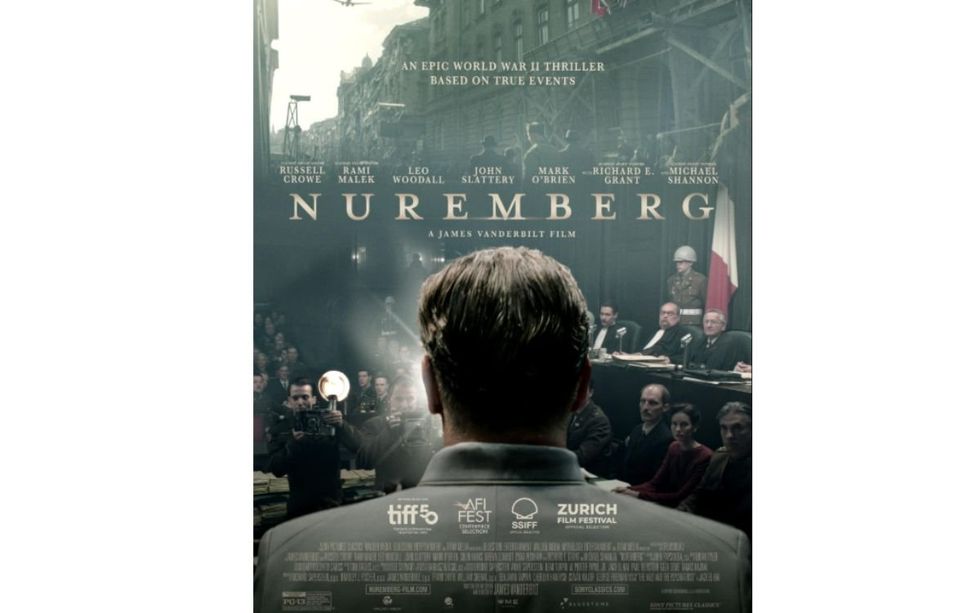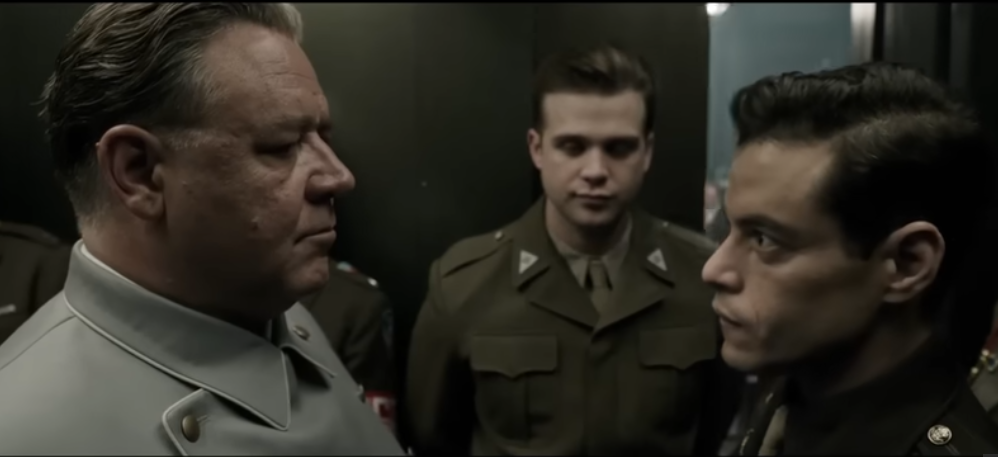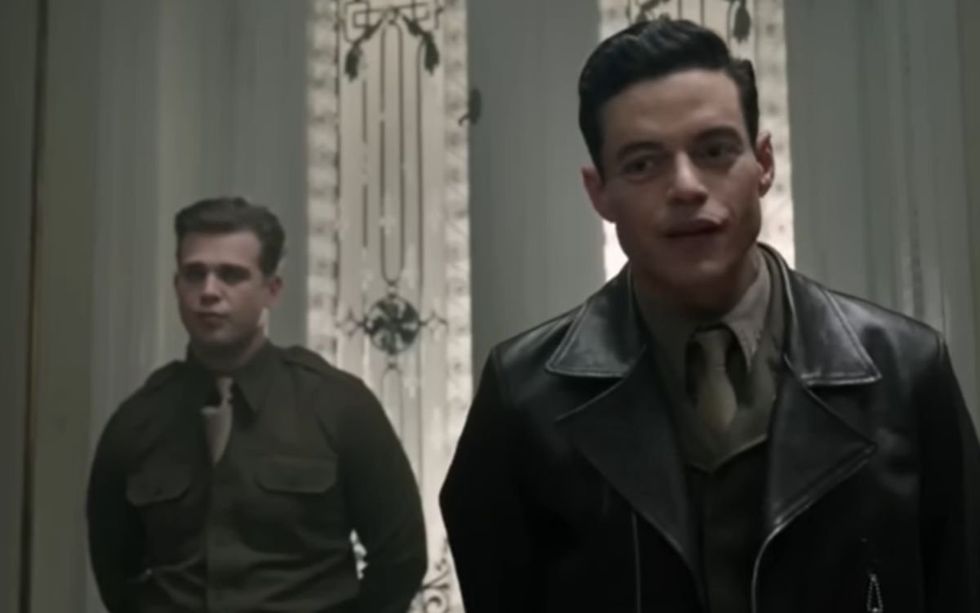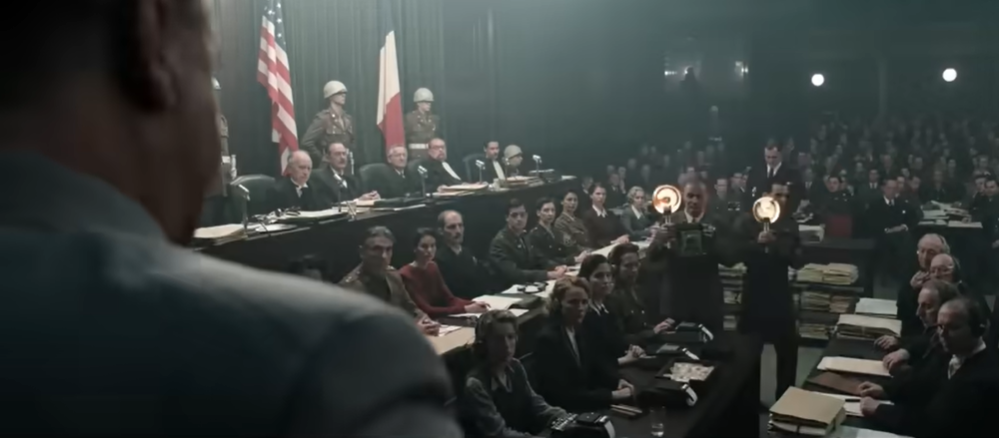Russell Crowe gives a flawless performance in hard-hitting Nuremberg: Film review

Outstanding performances and a compelling script makes Nuremberg a strong contender for an Oscar
Don't Miss
Most Read
80 years on from the infamous Nuremberg Trial, James Vanderbilt truly hammers home the mammoth task that lay ahead for the allies as they sought something slightly resembling justice for the horrors inflicted by the Nazis during the Second World War in Nuremberg.
The two-and-a-half hour film, featuring a stellar cast including Russell Crowe as Hitler's right-hand man Hermann Göring, offers an out-of-the-ordinary perspective into how and why psychiatrist Douglas M Kelley, played by Rami Malek, almost became lost as he attempted to get inside the mind of true evil personified.
It tells the events of the trial through the eyes of Kelley, who was assigned with monitoring the mental health of the prisoners, with the intention of keeping them from taking their own lives so they can stand trial and share with the world the atrocities committed by the Third Reich.
The film uses a vintage-style aesthetic as the cameras follow Kelley through his erratic physical and mental maneuvers.
From arriving a little too eagerly at the prison, full of morbid curiosity as he sets his eyes on the best-seller he'll pen, to the inevitable gut-punches he faces as he gets to grips with the reality of what he's dealing with, Kelley's journey is made heartbreaking and believable by Malek.
 |
| IMDB
TRENDING
Stories
Videos
Your Say
Audiences are privy to the doctor's inner conflict as he sets about being the one crack the commander in chief of the Luftwaffe.
His thoughts are laid bare through narrated entries of his findings, splashed into scenes that jump from Kelley writing in smoke-filled rooms to the questionable relationship he forms with Göring's wife and daughter, as well as the Nazi himself.
The doctor shortsightedly delves into the job at hand but along the way seems to forget what he's really there for, and why keeping the prisoners around long enough for them to receive a tiny semblance of justice is so important.
The tunnel vision he develops unfortunately causes the doctor to be temporarily blind to the unspeakable truths hiding just out of focus that the audience is all too aware of, but in doing so Kelley is dumbfounded by the horrible realities once his filtered lens of professionalism and ignorance is removed.
In one hard-hitting courtroom scene, Vanderbilt decided to show real footage taken of the emaciated and decaying bodies found in the concentration camps.

Nuremberg
|Sony Pictures Classics
While the horrific images are enough to have audiences looking away in horror, the impact serves its purpose of reminding Kelley just how unimaginable and indescribably sickening the events of the Holocaust were, meaning viewers finally see the exact moment a deep anger is finally awakened in the doctor, one that springs him into action.
Malek's captivating and candid interpretation of the conflicted medic packs a punch, with Leo Woodall also putting in a heartbreaking and memorable performance.
Crowe's portrayal of Göring, from the use of subtle micro-expressions to displays of unfiltered depravity, showcase in a genius manner how the war criminal was able to pull the wool, even briefly, over Kelley's eyes.
In a strange juxtaposition, his early scenes are somewhat comical in nature while his performance and presence simultaneously brings forward the weight of who he is and what he represents.
Crowe takes the complex and twisted mind of Göring and reminds us why he is often regarded as one of the stand-out actors of his generation.

Nuremberg
|Sony Pictures Classics
By coming at the history-making trial through the eyes of Kelley, audiences' eyes are opened to sometimes overlooked elements of the Third Reich and the establishments that turned a blind eye.
It also brilliantly captures the genuinely baffling task the allies faced as they decided how the world goes about punishing such abject horror.
Another clever outcome of watching the imprisoned Nazis analysed through Kelley's character is that it is made all too clear how frighteningly quickly evil can possess a person, a group and a society - and how under the right conditions, such thinking can spread while bystanders remain quiet.
The last part of the film demonstrates the way in which the Nazis were nothing special and how the world may not have heeded warning signs.
One poignant scene shows Kelley's fury as he is once again told that something like what happened in 1930s Germany "could never happen here in the US".
 |
| Sony Pictures Classics
While it can be argued Nuremberg at times skims the surface of the full picture of events, the telling through one man's perspective is what takes the audience on a realistic journey.
It's through the protagonist's eyes that it becomes striking how the frightening intelligence of just one person leading an evil crowd can bring about such a progression of hatred when mixed with the right opportunity.
Overall, the film achieves what it sets out to: capturing one man's brief but impactful insight into the world's most unprecedented court case - and the lifelong hold it had on him.
Nuremberg lands in cinemas on November 14.
Our Standards: The GB News Editorial Charter










